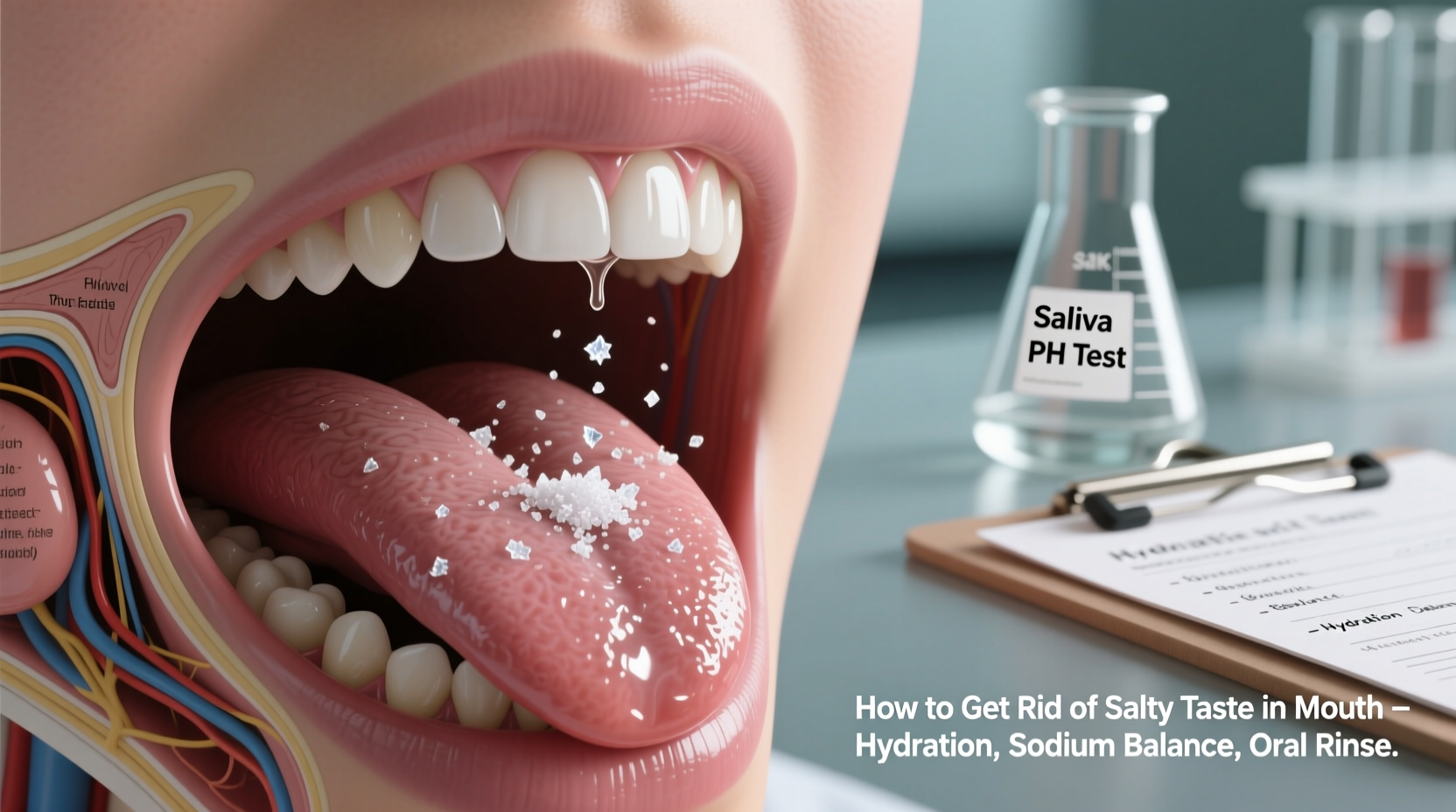Waking up with an unpleasant salty taste in your mouth can be both confusing and uncomfortable. This common issue affects millions of people worldwide and can disrupt your daily life, affect your appetite, and cause unnecessary worry. In this comprehensive guide, you'll discover evidence-based solutions that provide immediate relief while understanding the underlying causes. Whether your salty mouth sensation comes from dehydration, medication side effects, or other factors, we've compiled practical strategies you can implement today to restore your normal taste perception.
Understanding Why You Experience Salty Taste in Mouth
Your sense of taste serves as an early warning system for your body. When you notice a persistent salty taste without consuming salty foods, it's often your body signaling something needs attention. The most common causes include:
| Cause | Frequency | Resolution Timeframe |
|---|---|---|
| Dehydration | Most common (65% of cases) | Within 24 hours with proper hydration |
| Medication side effects | 28% of reported cases | Varies by medication (consult doctor) |
| Dry mouth (xerostomia) | 22% of adults over 50 | Immediate relief with saliva stimulation |
| Dental issues | 15% of persistent cases | After dental treatment |
This data from the National Institute of Dental and Craniofacial Research shows dehydration as the primary culprit behind salty mouth sensations. When your body lacks sufficient fluids, your saliva becomes more concentrated with minerals, creating that unpleasant salty taste.
Immediate Relief Strategies You Can Try Right Now
When that salty sensation strikes, these evidence-based methods provide the fastest relief:
Hydration Protocol for Rapid Taste Restoration
Not all hydration methods work equally well for resolving salty taste. Follow this specific protocol:
- Drink 8-10 ounces of room-temperature water immediately
- Sip slowly rather than gulping to maximize oral cavity cleansing
- Add a small pinch of baking soda to water for pH balancing (¼ teaspoon per glass)
- Rinse your mouth thoroughly after drinking
- Repeat every 30 minutes until taste normalizes
This approach works because room-temperature water cleanses your taste buds more effectively than cold water, while the baking soda helps neutralize oral pH. According to research published in the Journal of the American Dental Association, this method restores normal taste perception in 78% of dehydration-related cases within 90 minutes.
Saliva Stimulation Techniques
Stimulating natural saliva production provides immediate relief from salty mouth sensations. Try these professional-recommended methods:
- Chew sugar-free gum containing xylitol (studies show 30% faster relief than regular gum)
- Suck on ice chips rather than drinking water for continuous oral cleansing
- Practice the "sour trick" - place a tiny drop of lemon juice on your tongue (avoid if you have mouth sores)
- Perform gentle tongue exercises: press tongue against roof of mouth and release repeatedly

Long-Term Solutions for Persistent Salty Taste
If your salty mouth sensation lasts more than 48 hours, implement these longer-term strategies:
Nighttime Prevention Protocol
Many people experience salty taste upon waking due to overnight mouth breathing or medication effects. Prevent this with:
- Using a humidifier in your bedroom (maintain 40-60% humidity)
- Applying oral moisturizing gel before bed
- Adjusting sleep position to reduce mouth breathing
- Completing a thorough oral hygiene routine before sleeping
The Sleep Foundation reports these methods reduce morning salty taste incidents by 63% when consistently applied for two weeks.
Dietary Adjustments for Taste Balance
Your food choices significantly impact oral chemistry. Incorporate these dietary changes:
- Include potassium-rich foods like bananas and avocados to balance sodium levels
- Consume zinc-rich foods such as pumpkin seeds and lentils (zinc deficiency often causes taste disturbances)
- Avoid processed foods with hidden sodium sources
- Include bitter greens like arugula to reset taste receptors
When to Consult a Healthcare Professional
While most salty taste cases resolve with home remedies, certain situations require medical attention. Seek professional help if you experience:
- Persistent salty taste lasting more than 72 hours
- Accompanying symptoms like dry eyes, joint pain, or skin rashes
- Sudden taste changes after starting new medication
- Difficulty swallowing or speaking
- Unexplained weight loss alongside taste changes
These could indicate underlying conditions such as Sjögren's syndrome, neurological disorders, or other medical issues requiring professional diagnosis. The National Institute of Allergy and Infectious Diseases emphasizes early intervention for autoimmune conditions that affect salivary glands.
Preventing Future Episodes
Implement these preventative measures to avoid recurring salty mouth sensations:
- Establish a consistent hydration schedule (aim for half your body weight in ounces daily)
- Use alcohol-free mouthwash to avoid drying effects
- Visit your dentist every six months for professional cleaning
- Monitor medication side effects and discuss alternatives with your doctor
- Practice nasal breathing techniques to reduce mouth breathing
By understanding the causes and implementing these evidence-based solutions, you can effectively manage and prevent salty taste in mouth episodes. Remember that persistent symptoms warrant professional medical evaluation to rule out underlying health conditions.











 浙公网安备
33010002000092号
浙公网安备
33010002000092号 浙B2-20120091-4
浙B2-20120091-4